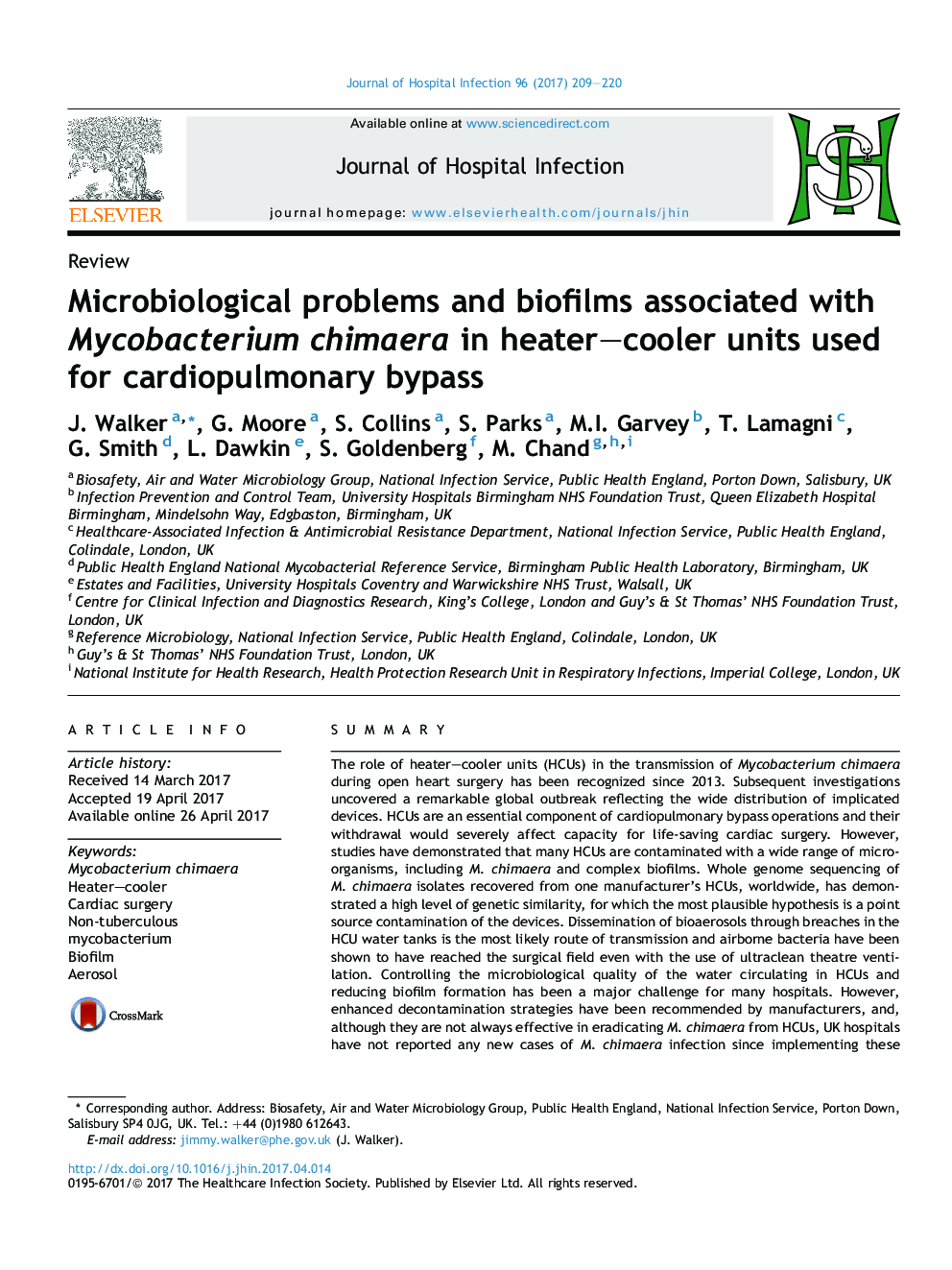| Article ID | Journal | Published Year | Pages | File Type |
|---|---|---|---|---|
| 5668259 | Journal of Hospital Infection | 2017 | 12 Pages |
SummaryThe role of heater-cooler units (HCUs) in the transmission of Mycobacterium chimaera during open heart surgery has been recognized since 2013. Subsequent investigations uncovered a remarkable global outbreak reflecting the wide distribution of implicated devices. HCUs are an essential component of cardiopulmonary bypass operations and their withdrawal would severely affect capacity for life-saving cardiac surgery. However, studies have demonstrated that many HCUs are contaminated with a wide range of micro-organisms, including M. chimaera and complex biofilms. Whole genome sequencing of M. chimaera isolates recovered from one manufacturer's HCUs, worldwide, has demonstrated a high level of genetic similarity, for which the most plausible hypothesis is a point source contamination of the devices. Dissemination of bioaerosols through breaches in the HCU water tanks is the most likely route of transmission and airborne bacteria have been shown to have reached the surgical field even with the use of ultraclean theatre ventilation. Controlling the microbiological quality of the water circulating in HCUs and reducing biofilm formation has been a major challenge for many hospitals. However, enhanced decontamination strategies have been recommended by manufacturers, and, although they are not always effective in eradicating M. chimaera from HCUs, UK hospitals have not reported any new cases of M. chimaera infection since implementing these mitigation strategies. Water safety groups in hospitals should be aware that water in medical devices such as HCUs may act as a vector in the transmission of potentially fatal water-borne infections.
